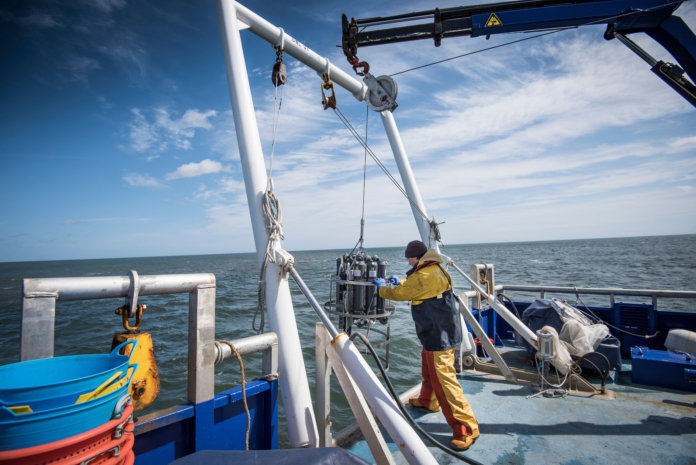NOAA announced on Tuesday the first round of funds totaling $20.5 million for the coordinated management of ocean and coastal resources around the country; the funding is part of the Bipartisan Infrastructure Law, with $832 million total being distributed over the next five years.
The goal for the coastal regions and national estuarine research reserve systems is to protect and restore habitats, including conserving lands that play a critical role in helping communities become more resilient to natural hazards,” NOAA states. Along with restoring to increase and strengthening natural infrastructure to protect communities while enhancing habitats for fish and wildlife.
“Advanced climate data is critical to helping communities act on the best available information when disaster strikes,” Secretary of Commerce Gina Raimondo said in the press release. “Thanks to the Bipartisan Infrastructure Law, we can invest in collecting and disseminating lifesaving data to communities across the country, especially those often overlooked and left behind.”
The funding will support projects to advance regional ocean partnerships and data sharing among ocean users and include the engagement of federally recognized tribes with existing regional ocean partnerships. The press release describes regional ocean partnerships “as convened by governors to work collaboratively across multiple states, in coordination with federal and tribal governments, on common priorities and challenges.”
A total of 13 awards were distributed to tribes and partners.
“This recommended funding allows communities to better plan for future changes as we build a climate-ready nation,” NOAA Administrator Rick Spinrad said. “NOAA values the contributions of all partners to better understand and manage climate-related risks.”
Below is where the funds will be allocated and for what purposes.
A total of $15.7 million went to four existing regional ocean partnerships, including the Gulf of Mexico Alliance, Northeast Regional Ocean Council, Mid-Atlantic Regional Council on the Ocean and West Coast Ocean Alliance.
The funds will enhance regional capacity for sharing data and better integration of federal and non-federal data in regions without existing regional ocean partnerships. Funding will also help build new information portals to facilitate data access and data products that support regional coastal, ocean, and Great Lakes management priorities.
The funding will address increasing ocean uses, support sustainability, track climate impacts on shifting ecosystems and enhance regional capacity for sharing and integrating federal and non-federal ocean and coastal data, NOAA stated.
The last group will include $3.7 million going to five U.S. Integrated Ocean Observing System regional associations the Alaska Ocean Observing, Pacific Islands Ocean Observing, Southeast Coastal Ocean Observing Regional, and Great Lakes Observing and will soon be awarded to the Caribbean Coastal Ocean Observing.
In addition, $1.1 million will go to four federally recognized tribes or tribal organizations the Makah Indian Tribe, Quinault Indian Nation, Columbia River Inter-Tribal Fish Commission, and Quileute Tribe.
The funding will support tribal actions related to regional ocean and coastal priorities.
“Equity remains at the heart of all we do at the Commerce Department, including the continued effort towards environmental justice for our tribal communities,” Deputy Secretary of Commerce Don Graves stated. “This funding is a necessary step in building on climate resilience efforts and protecting our coasts.”
Project descriptions can be found on NOAA’s Office for Coastal Management website.



